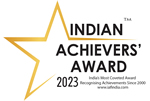Wearable Sensors: A New Way to Track Health and Wellness
DOI:
https://doi.org/10.5281/zenodo.8260879Keywords:
Wearable sensors, Biometrics, Activity tracking, Remote monitoring, mHealth, Smartwatches Digital biomarkers, Patient engagement, Preventive medicine, Precision healthAbstract
Wearable technology and sensors are emerging as promising tools for continuous, real-time health monitoring. From smart watches to fitness trackers and internet-connected clothing, wearables equipped with sensors allow users to measure and analyze data related to their physiological state, activities, and overall wellbeing. This paper explores the capabilities of current wearable sensors and their potential to provide novel insights into individual health patterns. Fitness trackers containing accelerometers and optical heart rate monitors are already widely used by consumers to count steps and monitor heart rate during exercise. However, clinical-grade wearable sensors are now being developed to accurately measure critical vital signs. These include blood pressure, respiration rate, oxygen saturation, skin temperature, hydration levels, and more. Wireless integration and machine learning algorithms enable wearables to track health indicators 24/7 and provide feedback to users and clinicians. Early detection of abnormal vital sign changes via wearable sensors could allow for timely medical interventions in high-risk patients. Personalized health recommendations and behavior modifications could also be delivered to consumers based on their unique sensor data profiles. Overall, wearable sensors may enhance wellness by increasing self-awareness of diet, sleep, activity, and stress patterns. However, there remain challenges regarding wearable sensor accuracy, reliability, and clinical validation. Measuring health data is only useful if patients and providers understand how to act upon it. Thus interdisciplinary research across technology, medicine, and public health is still needed to truly unlock the promise of wearables in improving health on a global scale. Nevertheless, wearable sensors are a groundbreaking advancement primed to take health tracking to the next level through informed and empowered individuals. This research paper summarizes the key topics, opportunities and challenges associated with using wearable sensors for health monitoring. It aims to provide readers with an overview of this emerging field and its implications.









